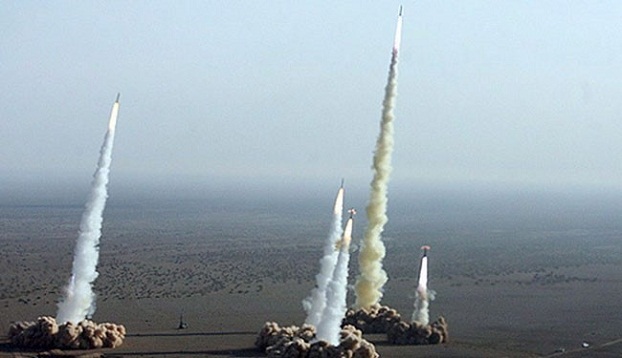- California Assembly OKs highest minimum wage in nation
- S. Korea unveils first graphic cigarette warnings
- US joins with South Korea, Japan in bid to deter North Korea
- LPGA golfer Chun In-gee finally back in action
- S. Korea won’t be top seed in final World Cup qualification round
- US men’s soccer misses 2nd straight Olympics
- US back on track in qualifying with 4-0 win over Guatemala
- High-intensity workout injuries spawn cottage industry
- CDC expands range of Zika mosquitoes into parts of Northeast
- Who knew? ‘The Walking Dead’ is helping families connect
N. Korea showing signs of mobile ballistic missile launch
WASHINGTON/SEOUL, April 13 (Yonhap) — North Korea is showing signs of preparations to conduct its first launch of a mobile ballistic missile that could potentially reach part of the United States, CNN reported Tuesday, citing U.S. officials.
U.S. intelligence satellites have picked up such indications, and the potential launch is most likely to involve the intermediate-range Musudan missile, feared to be capable of reaching Guam, as well as Shemya Island in the outer reaches of Alaska’s Aleutian chain, the report said.
But the North could attempt to test the longer-range, road-mobile intercontinental ballistic missile KN-08 or its advanced version, KN-14, which are believed to be capable of reaching the West Coast of the continental U.S., the report said.
Officials cautioned, however, that the North may not go ahead with a launch, adding that Pyongyang is well aware U.S. spy satellites keep constant watch on it, and such preparations could be part of the North’s attempts to deceive the U.S., according to the report.
The Pentagon declined comment.
“We are aware of the reports. I am not able to discuss the validity of these reports,” Lt. Col. Thomas Crosson, a Pentagon spokesman, told Yonhap News Agency. “As always, we urge North Korea to refrain from provocative actions that aggravate tensions and instead focus on fulfilling its international obligations and commitments.”
A South Korean military official also said, “Seoul is aware that North Korea is prepared to launch a ballistic missile at anytime,” without confirming the report.
The official said South Korea is making all-out preparations against the possibility of an additional provocation.
The report came amid heightened concerns that Pyongyang could undertake yet another provocation, such as a nuclear test and a long-range missile launch, to mark the birthday of founding leader Kim Il-sung on Friday. The country’s founder who died in 1994 is the grandfather of current leader Kim Jong-un.
Such a launch, if carried out, would mark the first time that the North has tested a mobile ballistic missile. The communist nation has displayed the KN-08 and other mobile missiles in military parades in recent years but has never test-launched them.
U.S. officials have voiced strong concerns about the North’s mobile missiles, especially the KN-08, as they can be fired from mobile launchers and are harder to keep an eye on. The U.S. has steadily strengthened its missile defense system to guard against such threats.
The North has advanced ballistic missile technologies, and succeeded in putting satellites into orbit aboard long-range rockets twice, first in 2012 and again in February this year. Experts say long-range rockets and ICBMs are basically the same with differences only in payloads.
Last week, the North claimed that it successfully carried out a ground test of a powerful ICBM engine, with leader Kim saying that the test “provided a firm guarantee for mounting another form of nuclear attack upon the U.S. imperialists.”
After analyzing images of the test, U.S. missile expert John Schilling said the test demonstrated Pyongyang is capable of building road-mobile, long-range missiles that can deliver nuclear warheads as far as Washington and New York.
In recent months, Pyongyang has also made a series of claims of breakthroughs in its nuclear and missile programs, including miniaturizing nuclear warheads to fit on an ICBM, mastering missile atmospheric re-entry technology and developing a solid-fuel rocket engine.
These claims came as Pyongyang has been trying to assert the leadership of Kim in the runup to a rare meeting of the ruling Workers’ Party set for May.
Victor Cha, chief Korea analyst at the Center for Strategic and International Studies, said that there is a likelihood of a North Korean provocation after the South’s parliamentary elections set for Wednesday and the North’s Workers’ Party Congress.
“Historically, North Korea has responded with a missile or DMZ provocation within an average seven-day span before or after the legislative election event,” he said. “The domestic dynamic of establishing the North’s recognized nuclear weapons status in time for the Party Congress is also a driving causal factor.”
The provocation could take the form of a fifth nuclear test or a launch of one of North Korea’s as-yet untested mobile, medium and long-range ballistic missiles, he said.













